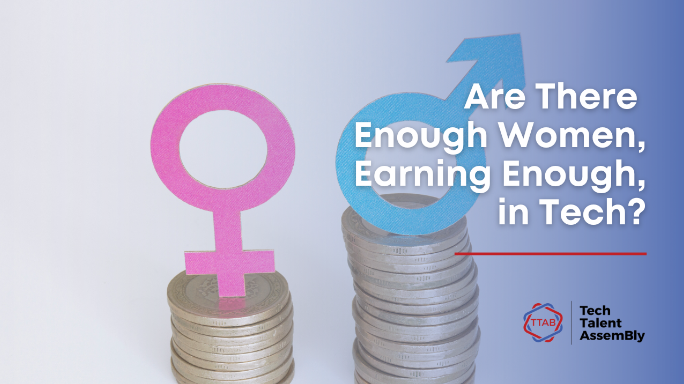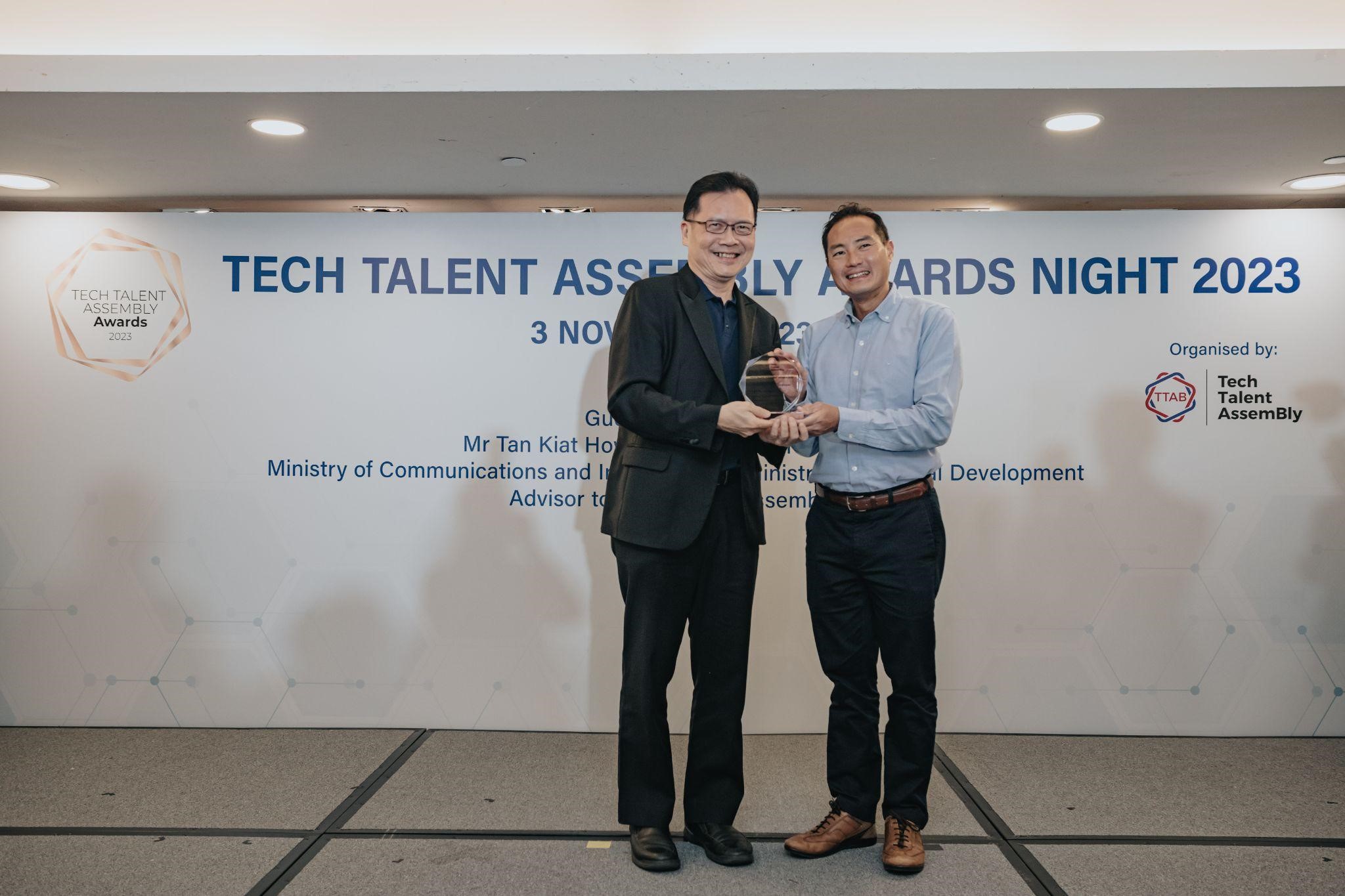Gender Equality & Salary Glass Ceilings in Singapore Tech Businesses

A 2023 Snapshot of Gender Equality in Singapore’s Tech Industry
The competitiveness of Singapore’s industrial scene is no secret, and neither is the island nation’s limitations in resources and talent. Perhaps by virtue of these restrictions, the numbers suggest that businesses in Singapore have done a relatively good job in bridging gender opportunity and pay gaps thus far. But is there more than meets the eye, and can women, their colleagues, and business leaders alike do more in ensuring that deserving talent rises to the top regardless of gender?
State of gender equality in Singapore tech
More women receiving higher education
The National University of Singapore used to house the nation’s only medical facility. In the early days, just one-third of vacancies within local medical programmes were allocated to women. Today, female students make up an overwhelming 65.3% of the overall medical intake, suggesting that the once unequal playing field may have levelled out. Scholarship grants are increasingly being handed out to deserving women as well, making up 31% of the Infocomm Media Development Authority’s SG Digital Scholarship awardees.
Female representation continues to trail in tech, despite positive experiences
Despite these efforts, male graduates from information and communication technology (ICT) majors have consistently outnumbered their female counterparts 2:1 over the last decade. Zooming out to all STEM majors brings this figure up to 40%. That said, lack of female representation within the tech industry has been attributed to several systemic issues, including recruitment software that discriminates against female candidates, or gendered biases within AI assistance tools.
Somewhat reassuringly, Singapore ranks 2nd amongst Southeast Asian nations when it comes to female representation in the workplace. At 41%, the island nation is well ahead of the regional average of 32%, falling just 1% point short of Thailand’s 42%. Moreover, 65% of ASEAN women consistently cite positive experiences at tech companies when it comes to matters of recruitment, training, and receiving promotions.
Why is gender equality important?
Talent forms the lifeblood of many companies, and even more so within Singapore’s limited populace. Beyond simply being the ‘right’ thing to do, gender equity at the workplace has been linked to positive outcomes in profitability and productivity. Specifically, research from the Peterson Institute for International Economics shows that firms where 30% of leaders are women rake in 15% more profits than similar firms with no female leaders.
Having more women at the forefront helps out companies in several ways, such as attracting wider pools of talent and creating work environments where more people are inclined to speak up because they witness representation at the top. 76% of job seekers take diversity into account when deciding where to work, meaning that companies can not only save money on recruitment with higher female representation, but also ensure greater work satisfaction post recruitment.
Wage gap in Singapore persists despite advances in gender equality
According to the Ministry of Manpower, Singapore’s adjusted gender pay gap has been gradually narrowed from 8.8% in 2002 to 6.0% in 2018, and most recently 4.3% in 2020. Earnings among full-time female employees aged 25 to 54 also decreased from 16.3% in 2018 to 14.4% in 2020. While encouraging, these numbers indicate a noticeable wage gap that may be indicative of women filling in lower positions within local organisations.
Cultural wage gap?
As it turns out, cultural factors may play a part in preventing women from receiving compensation that they deserve. A survey by Workforce Singapore revealed that 73% of male jobseekers were willing to negotiate for the salary they wanted compared to just 49% of women. 63% of men also felt comfortable asking for a pay raise in contrast with just 46% of female employees. Perhaps most critically, women were found to request for 30% less than what men in similar situations would.
Change on the horizon
Clearly, there are still ways to go before the local tech scene can achieve true equality. But instead of letting things take their natural course, female leaders are stepping up to the plate to push for expedited change.
Executive sponsor of the Women’s Founder Forum and president of SAP Southeast Asia, Verena Siow aims to have 50% of women in leadership by 2025, a feat that her organisation has already achieved within Southeast Asia, but nevertheless wishes to extend globally. Joining her are the likes of P&G which have also pledged to maintain a 50-50 gender balance across their management workforce.
Challenge the status quo
Those who wish to take a leaf from Siow’s handbook will be surprised to find that she and other successful women at the top have not been afraid to challenge the status quo. Indeed, when questioned whether she would have trouble travelling as a mother, she simply said:
“If I were a man, would you ask me the same question?”
Admittedly, few will be comfortable enough to lead with such retorts when interviewing for a role. Siow’s anecdotal experience, however, suggests that speaking our minds and fighting for our rights at work may not be the career suicide that it’s often made out to be. In fact, Siow states that she’s never been rejected from a desired role for such retorts.
Her experience is corroborated by management consulting company BCG, which collaborated with Heidrick & Struggles to survey over 750 tech leaders. What they found was that there’s no ambition gap between men and women, with 67% and 62% of them trying out for promotions respectively. In fact, women were found to cite early promotions as critical more often than men.
For as much progress as the tech scene has made, there’s still a dearth in female voices within industrial conversations. If you’d like to have your voice heard on social issues within the workplace, head on to our social channels on LinkedIn and Facebook. Better still, share your thoughts in person at TTAB Career Conversations and be part of the latest happenings within the local tech scene.



